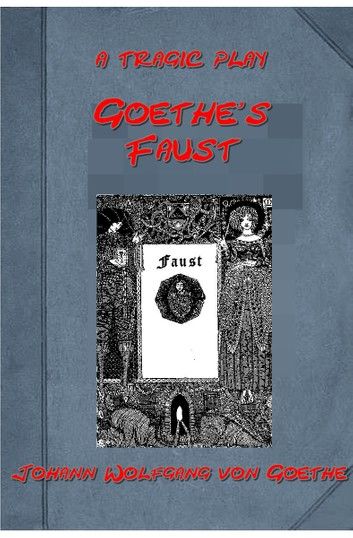| FindBook |
有 1 項符合
Goethe's Faust (Illustrated)的圖書 |
 |
Goethe's Faust (Illustrated) 作者:Johann Wolfgang von Goethe 出版社:AGEB Publishing 出版日期:2014-10-18 語言:英文 |
| 圖書館借閱 |
| 國家圖書館 | 全國圖書書目資訊網 | 國立公共資訊圖書館 | 電子書服務平台 | MetaCat 跨館整合查詢 |
| 臺北市立圖書館 | 新北市立圖書館 | 基隆市公共圖書館 | 桃園市立圖書館 | 新竹縣公共圖書館 |
| 苗栗縣立圖書館 | 臺中市立圖書館 | 彰化縣公共圖書館 | 南投縣文化局 | 雲林縣公共圖書館 |
| 嘉義縣圖書館 | 臺南市立圖書館 | 高雄市立圖書館 | 屏東縣公共圖書館 | 宜蘭縣公共圖書館 |
| 花蓮縣文化局 | 臺東縣文化處 |
|
|
The play is based on a true story of a medieval scientist (alchimist) whose methods of research were considered magic. The story was so much exagerated by every generation that in 1587, as the original "Faustus" book appeared, it maintained that its primary character Faust has established an alliance with the devil himself, that it was the absolute evil that helped him making his discoveries. The Englishman Christopher Marlowe was the first to write a play based on "The tragical History of Doctor Faustus". In the 18th century, the young Goethe picked up the subject of Faust and began transforming it into a play that would eventually become the flag of the entire German literature. "Faust 1" was published for the first time in 1805 with great success. In 1832, just after the author's death, the continuation of the tragedy appeared. Since "Faust 2" didn't have any dramatical plot, it was presumed as unplayable on the stage and was more or less forgotten. Since its publishing, particularly "Faust 1" has played an important role in German culture. Many proverbs frequently used in German language originate in this play.
Before beginning his work, Goethe read the original story and made some artistic adjustments in the plot that should help him explain the themes he wanted to have explained. The first scene, Faust's famous monologue, is designed to make us think what really is valuable in our lives, what the price is you pay for knowledge, what the word "happiness" means and the importance of this word for our well-being. Then there is the devil himself, Mephisto, whose sarcastic and too human-like speaches made him one of the most intriguing character in the entire literature. He takes Faust on a trip to show the poor doctor how the world is really built. Faust, who doesn't believe in God (religion is another subject of the play), falls in love with a deeply religious girl called Gretchen. She is the pure personification of innocence, devinity and morale on Earth, without becoming a cliche. Faust, supported by Mephisto, seduces the poor girl. She can't live with her sins; as a result she kills her and Faust's child and is sentenced to death. Faust is desperate to save his lover, but Gretchen doesn't let him do it because she recognizes her guilt and is courageous enough to face her death. At the end, Gretchen is saved by God (! ) whereas Faust and Mephisto escape.
The play, written in a really wonderful language (the translation isn't bad, either), is a kind of a tale for adults full of humour, interesting philosophical views and irony (have you ever seen a serious play in which both God and devil participate?).
|










